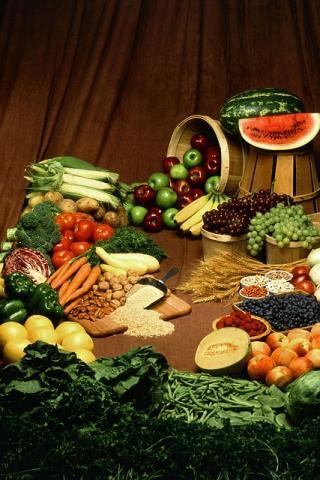
Do you remember taking those little fruity Flintstones multivitamins? Well, as a child, I ate them because they were pretty darn close to being plain ol’ candy. Now, as an adult, I don’t have to buy any daily vitamins because I’m already buying foods that are great sources of necessary vitamins and minerals. Plus, the best part about adulting is that it gives you the freedom to buy actual candy, if candy is what you crave (don’t we all from time to time?).
Unless you’ve been diagnosed with vitamin or mineral deficiencies, why waste your time, money, and effort on just another thing you “have” to remember to take each day? I don’t know if you’ve heard, but your body expels all of the excess vitamins that overabundant, unregulated supplements supply anyway. By properly educating yourself about different foods, which provide various vitamins and minerals, your body will easily be getting the nutrients it requires through everyday eating—the natural way.
- Vitamin B6: Vitamin B6 ensures a properly functioning nervous system, and aids in protein metabolism. To keep things running smoothly, fill up on brown rice, organic bananas, beans, and nuts.
- Calcium: Over the years, we’ve all seen those commercials about how important calcium is for strong bones, and it is. I’m sure none of us want osteoporosis, which is why we should be eating lots of dark, leafy greens (think spinach, kale, collard greens, etc.).
- Vitamin D: Unless you’re vacationing on a beach somewhere (lucky), most of us probably aren’t getting enough vitamin D this time of year, which means your body isn’t absorbing as much calcium as it could be. To fix this, eat fortified foods, such as cereal.
- Iron: Iron is essential for red blood cell production. When your body lacks iron, it can develop anemia, a condition characterized by fatigue, shortness of breath, inability to focus, and pale skin. Anemia is prominent among vegetarians and vegans (my sister couldn’t donate blood once due to insufficient iron levels) because iron is typically found in animal products, but eating vegan dark chocolate, lentils, and fortified grains will do the trick.
- Potassium: Potassium maintains heart and cell function, electrolyte balance, and fluid retention. Deficiency could cause irregular heartbeats, and muscle problems. Recently, my brother was found to have had dangerously low potassium levels. After treatment, he was advised to eat potatoes and tomatoes because, contrary to popular belief, bananas aren’t the most potassium-rich food. I’m almost certain that my body has adequate potassium levels because, trust me, I eat plenty of both -- especially potatoes.








